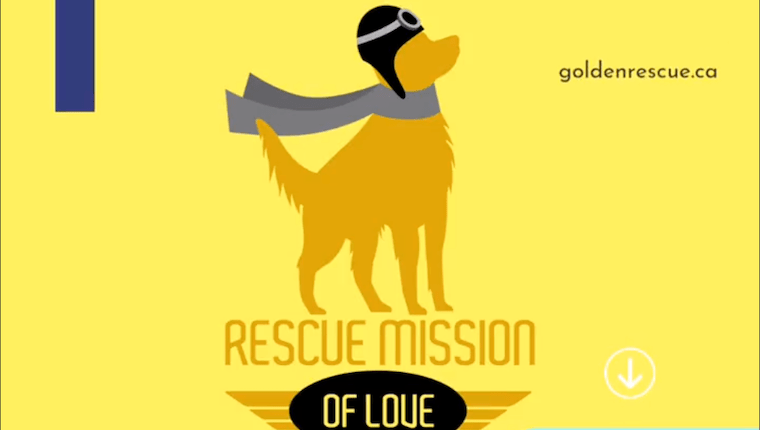Eleven Golden Retrievers from Turkey landed in Canada before the implementation of an import ban on some foreign dogs. Golden Rescue brought the retrievers to Vancouver from Istanbul. This rescue group and others are scrambling to bring dogs into the country before September 28.
Retrievers Make the Cut
Golden Rescue’s goal is to bring in about 110 more retrievers. “Our partners in Istanbul and in Cairo rely very heavily on us to save dogs from very terrible conditions or even death. With the new ban, we’re not gonna be able to help them anymore, we’re not going to be able to bring the dogs into Canada into safe forever families anymore,” Anastassia Ferdman, a Golden Rescue volunteer, told Global News. Volunteer Lisa Alemany-Kunzler said, “I’m just very excited. It’s such a good feeling to rescue and just be a part of all these other people here that are rescuing their dogs too.”
All the dogs imported by Golden Rescue go through extensive medical protocols. This includes a vet-check and vaccination against rabies and distemper before arriving in Canada. The group says on its website that they aren’t currently bringing any Goldens from the areas with reported outbreaks of canine flu and/or brucellosis. The Canadian Veterinary Medical Association says the upcoming ban on commercial dogs, including rescue dogs, from more than 100 countries is necessary to prevent the spread of rabies in Canada.
Why Ban Dogs?
Earlier this year, the Canadian Food Inspection Agency (CFIA) announced its plan to ban commercial dogs from countries at high-risk for dog rabies. According to the CFIA, there are no known active cases of dog rabies in Canada. However, canines with the disease were imported into the country last year, prompting the import ban. CFIA further stated that nearly 60,000 people die each year from dog rabies in the countries covered by the ban. This includes Afghanistan, Ukraine, Dominican Republic, Pakistan, and Russia.
Louis Kwantes, a spokesperson with the Canadian Veterinary Medical Association, told the Globe & Mail, “The level of emphasis and level of degree of control must be related to the level of concern. And when we’re dealing with a disease that essentially results in 100 percent fatality for people who get it, that’s pretty significant.”
Opposition to Import Ban
“Golden Rescue and many other rescue organizations are all for increasing medical protocols to make sure everyone in Canada is safe,” says Ferdman. She continues, “We don’t believe that a full ban is necessary.”
Ferdman isn’t alone in her concerns. Camille Labchuk, the executive director of Animal Justice in Ottawa, agrees. Labchuk says an outright ban will result in more dogs being euthanized in their home countries. She also speculates that the ban could result in more puppy mills in Canada. Her belief is that the ban should be “replaced with more stringent vaccination requirements and antibody testing.”
Rabies Rules
The CFIA said all currently issued import permits will remain valid until the end of the validity period specified on the permit. Additionally, the import conditions contained in the import permit would continue to apply. All import permits issued on or after June 28 will expire on Sept. 27, regardless of the issuance date of the permit. As of Sept. 28, Canada will no longer issue import permits.





